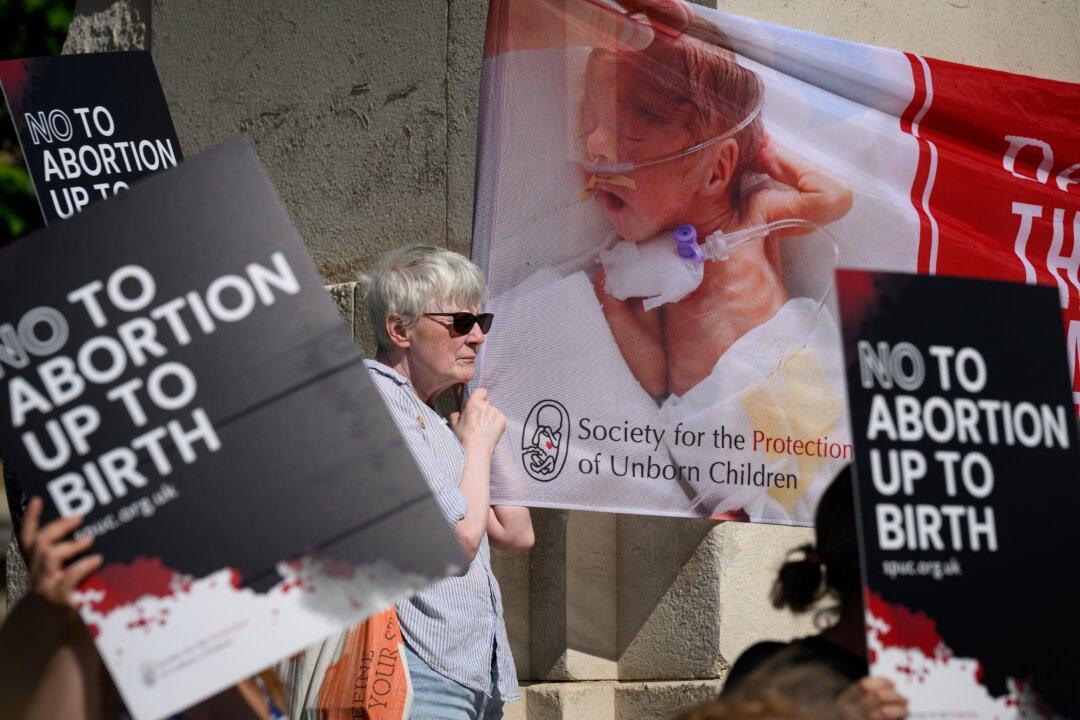MPs are set to vote on proposed legal changes that would remove women from criminal liability for ending their own pregnancies.
Creasy’s amendment, based on U.N. recommendations, would fully decriminalise abortion by scrapping two Victorian-era laws: 1861 Offences Against the Person Act and the 1929 Infant Life Preservation Act. It would prevent both women and health care providers from being prosecuted.
It would also keep the current NHS rules in place but treat abortion entirely as a health care issue, not a crime.
Antoniazzi’s more limited proposal would only protect women from being criminalised for ending their own pregnancies at any gestation, even after 24 weeks when abortions are only allowed under specific circumstances.
It would not repeal any laws or change how abortions are provided, meaning doctors could still technically face prosecution under current legislation.
MPs are traditionally allowed to hold a “free vote” on ethical issues like abortion. This means parliamentarians don’t have to follow any party line in the vote, which is set to take place on Tuesday.
Outlining her position ahead of the vote, Justice Secretary Shabana Mahmood described the measures proposing to decriminalise abortion as “extreme.”
Mahmood opposes extending abortions up until the point of birth beyond the exemptions that currently exist, such as in cases where after 24 weeks there is a serious risk to the life or health of the mother, or where the foetus has a severe abnormality.
She added that as part of the wider bill, the approval of these amendments would leave “less time for debate.”

Divided Response
Leading reproductive and women’s health care providers and medical bodies, including the British Pregnancy Advisory Service (BPAS) and the Royal College of Obstetricians and Gynaecologists (RCOG) have backed Antoniazzi’s amendment.RCOG President Dr. Ranee Thakar said in a statement, “Abortion is an essential form of healthcare and should be subject to regulatory and professional standards like other medical procedures, not criminal sanctions.”
Packer, who took abortion pills during the COVID-19 lockdown believing she was within the permitted gestational period, was cleared by a jury last month.
She took prescribed abortion medicine when she was around 26 weeks pregnant, beyond the legal limit of 10 weeks for taking such medication at home.
In 2020, Foster aborted her child at 34 weeks with illegally-obtained abortion pills. She was jailed in 2023 after the court found she lied to the BPAS about how far along in her pregnancy she was.
Critics of the amendments have argued that they would push to “strip unborn babies of any remaining protection” and would increase the risk of sex-selective abortions.

The Society for the Protection of Unborn Children (SPUC) said in a statement that the proposed changes would bring about “the biggest expansion of abortion since 1967.”
“Both amendments would allow abortion up to birth, for any reason. NC20 (Ms Creasy’s amendment) is only more horrifying because it removes any way of bringing men who end the life of a baby by attacking a pregnant woman to justice,” said SPUC Public Policy Manager Alithea Williams.
Pills by Post
Ahead of the vote, over 1,000 medical professionals urged MPs to oppose the abortion up to birth amendments.They warned the decriminalisation would effectively allow abortions up to birth for any reason, including sex-selective abortions.
“If either of these amendments were to become law, it would also likely lead to serious risks to women’s health because of the dangers involved with self-administered late abortions,” their letter said.
Medical professionals have called to reinstate in-person appointments before women may be prescribed abortion pills in order to accurately assess their gestational age and health.
Under the telemedicine abortion, also known as the “pills by post” policy, women are allowed in the first 10 weeks of pregnancy to receive abortion medication at home after a remote consultation.
The policy was introduced during the pandemic and made permanent in England and Wales in 2022.
A separate amendment, tabled by Conservative MP and shadow health minister Caroline Johnson, proposes mandatory in-person consultations before women are lawfully prescribed medicine for the termination of a pregnancy.
Johnson has argued that the pills by post scheme enables cases of coerced abortions, where a man could “obtain pills by a third party to induce a woman to have an abortion against her will or knowledge.”
She also highlighted health risks as a result of the policy, when women are mistaken about their gestation and take pills later in pregnancy.
Right to Life UK campaigners have backed Johnson’s amendment.
“The solution is clear. We urgently need to reinstate in-person appointments. This simple safeguard would prevent women’s lives from being put at risk from self-administered late-term abortions, a danger that would be exacerbated if abortion were ‘decriminalised’ right up to birth,” said spokesperson Catherine Robinson.
Meanwhile, RCOG has argued in favour of telemedicine, suggesting it removes “barriers” to sexual and reproductive health care and reduces inequalities among female patients.
“Removing access to telemedicine will only increase these barriers,” said Thakar.
A recent YouGov poll revealed that while a majority of respondents support women’s right to access abortion, only 7 percent backed increasing the legal time limit beyond 24 weeks.
Meanwhile, around 46 percent said they found the current abortion laws and provisions broadly satisfactory.







